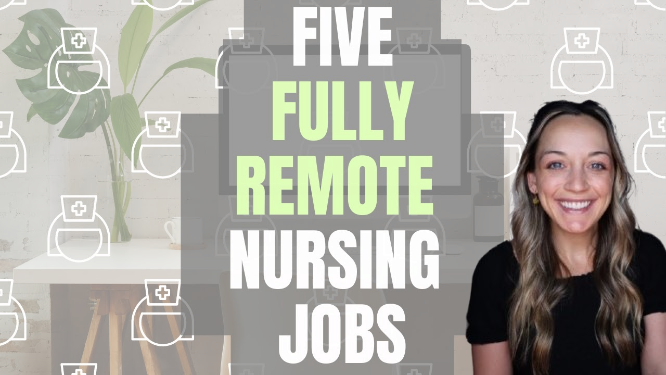Is a Remote Nursing Job Right for You?

Ellen Grover
Remote nursing jobs are really changing the game in healthcare. With technology becoming a bigger part of how we deliver care, nurses now have the chance to work from home or in hybrid setups while still making a real difference in patient health. But is remote nursing the right fit for you? This guide will take you through the perks, challenges, and different job types that come with remote nursinghttps://bestworldjob.com.
Advantages of Remote Nursing Jobs
- Flexibility in your schedule and location, which is perfect for nurses juggling caregiving duties or dealing with chronic health issues.
- Less exposure to workplace hazards and infectious diseases.
- Reduced commuting time and costs.
- Opportunities to focus on specialized care, education, or case management without needing to be in direct contact with patients.
- A growing demand in fields like telehealth, insurance, and virtual triage.
Disadvantages of Remote Nursing Work
- Limited direct patient interaction, which might impact job satisfaction for those who thrive on hands-on care.
- The potential for feeling isolated or burned out without regular face-to-face team engagement.
- Requires solid tech skills and a reliable internet connection.
- Can involve long hours in front of a screen, which can lead to fatigue.
- Not every state or employer offers fully remote positions for nurses Remote Nursing Jobs.
Hybrid Work
Some nursing roles combine remote and on-site work. For instance, a case manager might work from home most days but still need to visit clinics or attend team meetings occasionally. Hybrid work offers flexibility while keeping some in-person interaction, making it a popular choice for hospitals and insurance companies for Remote Nursing Jobs.

Types of Remote Nursing Jobs
- Telehealth Nurse: Provides care through phone or video, handling assessments, education, and follow-ups.
- Nurse Case Manager: Coordinates patient care plans and connects patients with the right services.
- Triage Nurse: Evaluates symptoms and directs patients to the appropriate level of care.
- Health Coach: Offers wellness counseling, often focusing on chronic conditions like diabetes or hypertension.
- Utilization Review Nurse: Assesses the necessity and efficiency of healthcare services.
10 Best Online Remote Nursing Jobs | 2025
The healthcare industry keeps changing, and so does how nurses work. Thanks to telehealth, digital health records, and other healthcare platforms, remote nursing jobs are easier to find than ever. Whether you want to skip long shifts, cut down on stress, or achieve better work-life balance, remote roles provide flexible and rewarding opportunities for nursesRemote Nursing Jobshttps://www.remotejobs.io .
Popular Online Master of Science in Nursing (MSN) Programs
Getting an MSN can open doors to leadership roles and specialized remote positions. Many online MSN programs offer flexibility for working nurses and Remote Nursing Jobs focus areas like education, informatics, or case management. Schools like Walden University, Chamberlain University, and Purdue Global provide top-rated online MSN programs.
Can Nurses Work Remote?
Yes! Nurses can find various remote roles, especially in non-bedside settings like case management, informatics, education, and insurance review. Remote work allows licensed nurses to use their skills while working from home, either full-time or in hybrid positions.
Top 10 Online Nursing Jobs Where You Can Work Remote
1. Case Management
Remote case managers coordinate patient care, assess needs, and ensure treatment plans are followed. They work for insurance companies, hospitals, or home health agencies and often communicate via phone or video.
2. Insurance Claims Nurse
These nurses review medical claims to determine if treatments were necessary. They collaborate with insurance adjusters and need to understand Remote Nursing Jobs clinical guidelines and billing codes well.
3. Telephone Triage Nurse
Triage nurses assess patient symptoms over the phone or online and guide them Remote Nursing Jobs to the right level of care. This role requires strong clinical judgment and communication skills.
4. Informatics Nurse
Nurses in this role connect healthcare and IT. They support electronic health record systems, improve clinical workflows, and analyze patient data to improve outcomes. A background in data and technology is important.
5. Call Center Nurse
These nurses offer support through large healthcare call centers, providing information, education, and guidance to patients and caregivers. The job requires good communication, empathy, and organization skills.

6. Freelance Nurse Writer
Nurse writers create educational content, blogs, and continuing education materials for health companies, publishers, or websites. This role suits nurses who enjoy research and writing.
7. Nurse Educator
Remote nurse educators teach online courses to students or offer continuing education to practicing nurses. An MSN or higher is typically required, along with teaching or clinical experience.
8. Legal Nurse Consultant
Legal nurse consultants review medical records and assist attorneys with healthcare-related cases. Many work remotely, reviewing documents and preparing expert reports.
9. Nurse Recruiter
Nurse recruiters help healthcare facilities fill open positions. This role includes interviewing, networking, and screening candidates, which is ideal for outgoing nurses with an interest in HR.
10. Clinical Research Nurse
These nurses manage clinical trial processes, ensure patient safety, and keep documentation. Remote work may involve data collection, follow-ups, and regulatory tasks.
Popular Online Master of Science in Nursing (MSN) Programs
These programs often offer specializations in:
- Nurse education
- Nursing leadership
- Nursing informatics
- Psychiatric-mental health nursing
Online options allow nurses to balance career growth with personal and professional responsibilities.
What to Expect in a Remote Online Nursing Job
- A home-based setup with secure access to medical systems
- Use of EMRs, telehealth platforms, and patient databases
- Fixed or flexible work schedules, depending on the employer
- High demand for self-discipline, organization, and communication
- Privacy and compliance training, especially for HIPAA

Pros and Cons of Working Remotely as a Nurse
Pros:
- Flexible schedule and location
- Less physical strain compared to bedside roles
- Opportunities in diverse industries (tech, insurance, education)
- Reduced commuting costs and time
Cons:
- Less patient interaction and hands-on care
- Screen fatigue from long hours in front of a computer
- Requires strong self-motivation and time management
- Possible feelings of isolation or disconnection from peers
Top Tips for Getting an Online Nursing Job
1. Look For Jobs in the Right Places
Check job boards like:
- The Remote Nurse
- FlexJobs
- Indeed (with “remote” filter)
- Nurse.com
2. Make Sure You Meet the Requirements
Ensure your licenses and certifications are current. Some roles may require compact licensure (NLC), an MSN degree, or experience in a specific specialty.
3. Make Your Resume Stand Out
Highlight your tech skills (EMR platforms, telehealth software), remote work experience, and soft skills like communication, time management, and teamwork.
Next Steps
Remote nursing is an exciting and growing field. Whether you’re moving from bedside care or exploring a new nursing area, there’s likely a remote job that matches your strengths. Start by identifying your goals, updating your resume, and researching online programs or certifications that prepare you for remote work.
Frequently Asked Questions (FAQs) – Remote Nursing Jobs
1. Can nurses really work from home?
Yes! Many nurses now work remotely in roles like case management, triage, informatics, education, and insurance review. These jobs use phone, video, and online platforms to support patient care without being in a clinic or hospital.
2. What kind of nursing license do I need for remote work?
You typically need an active RN license. Some jobs also require a compact license (NLC) if you are working with patients across multiple states. Advanced roles may need a BSN or MSN.
3. Do remote nursing jobs pay well?
Yes, many remote nursing roles offer competitive salaries. Pay depends on experience, location, and the role. For example, nurse case managers and informatics nurses often earn between $70,000 and $100,000+ per year.
4. What skills are important for remote nursing?
- Strong communication skills
- Clinical judgment
- Tech proficiency (EMRs, telehealth platforms)
- Organization and time management
- Ability to work independently
5. Are remote nursing jobs full-time or part-time?
Both. Many companies offer full-time remote positions, while others have part-time, contract, or per-diem opportunities. These options are ideal for nurses seeking flexible hours.
6. What are the most common remote nursing roles?
- Case manager
- Telephone triage nurse
- Informatics nurse
- Nurse educator
- Insurance claims reviewer
- Clinical research nurse
- Freelance nurse writer
7. How do I find remote nursing jobs?
Start with trusted job boards such as:
- The Remote Nurse
- FlexJobs
- Nurse.com
- Company websites (e.g., Aetna, UnitedHealth, CVS Health)
8. Can new graduates work in remote nursing?
It’s possible, but most remote roles require at least 1 to 2 years of clinical experience. Entry-level roles like chart review, nurse recruiting, or health coaching may be more accessible for newer nurses.
9. Will I need special equipment to work from home?
Yes. A secure internet connection, a reliable computer, a quiet workspace, and possibly a headset or dual monitors are often required. Employers may provide some tools or reimburse you.
10. Is remote nursing right for everyone?
Not always. Some nurses miss in-person interaction and prefer hands-on care. Remote roles suit independent, self-motivated nurses who feel comfortable with technology and virtual communication.